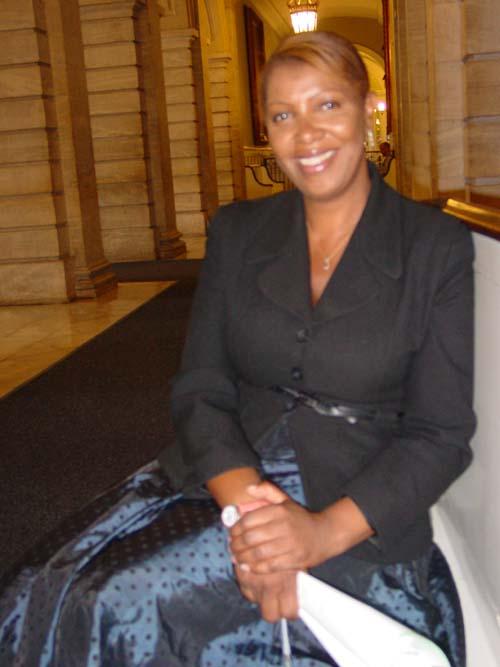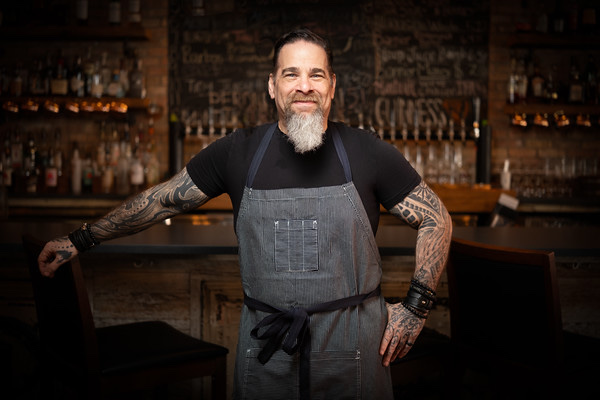Brooklyn’s non-profit attorneys expressed shock and disappointment upon hearing news that the newly passed $59.1 billion New York City budget will include cuts that will hinder legal service organizations from providing counsel to Brooklyn’s most vulnerable populations.
“We’re all feeling a little blindsided,” said Jennifer Levy, director of the Housing Unit at South Brooklyn Legal Services. “Nobody anticipated there would be cuts of this magnitude. We are really the place of last resort. People will have nowhere to go to get legal representation. It’s just going to be devastating for low-income people in this city.”
Although future budget modifications could change the official figures, City Hall reduced spending by $300 million, with South Brooklyn Legal Services absorbing cuts of about half its budget, about $435,000, down from the $920,000 they expected to receive. Funding for earned income tax credit and HIV/AIDS was eliminated, funding for SSI and unemployment insurance was reduced by 50 percent and funding for eviction prevention and domestic violence assistance was reduced by 25 percent.
Brooklyn Legal Services, also known as Brooklyn A, a separate legal services corporation providing assistance in North and East Brooklyn, received similar cuts, about $300,000 on an annualized basis.
“The mayor’s intransigence about a small sum of money, an amount that would have been a mathematical rounding error in a $59 billion budget, an amount that they are hiding in understated fine revenues, caused budget shortfalls for a number of vital services in this city,” said Councilmember Lew Fidler, who represents Canarsie, Sheepshead Bay and Marine Park, among other neighborhoods. “To the great misfortune of many, Legal Services was one of these.”
Said Councilmember Bill de Blasio, who represents Borough Park, Carroll Gardens, Cobble Hill, Gowanus, Kensington, Park Slope and Windsor Terrace: “It is unfortunate that these cuts will likely have a tangible, negative impact on the constituents who rely heavily on these important services.”
According to David Bryan, an attorney with BLS, its ability to provide representation for clients with HIV/AIDS facing eviction, as well as those receiving Social Security, welfare and other public benefits would be drastically hindered.
“The reason why non-profits like ours exist is because the city does not provide services,” Bryan said. “At the point when HIV positive people are trying to avoid eviction, this is pretty much the end of that front. It is difficult to know what we’re going to do going forward.”
During the budget negotiations on June 29, the City Council restored $18.65 million in funding for legal services throughout the city, including $750,000 for the Legal Aid Society and $750,000 for Legal Services for New York City for Interest on Lawyer Accounts funds and $8.65 million for Legal Aid’s Criminal Defense Division. A citywide coalition of legal organizations will be meeting with councilmembers on July 14 to discuss how to restore additional funding.
“The hope is that these temporary funds will fill the gap until there is a budget modification but it will not make up for the cut,” Councilmember Letitia James said. “It will not make them whole. It’s just a band-aid for now.”
While there have been no new cuts in existing staff, the immediate result of these cuts is that organizations will have to impose hiring freezes or scale back new attorney hires.
South Brooklyn Legal Services will put its search for six new foreclosure specialists on hold while the Legal Aid Society, which provides criminal defense representation, may only welcome in 10 new attorneys, down from 40 who came in last year. Attorneys at these organizations said that they were overburdened with cases and understaffed, which could lead to clients taking on private counsel or representing themselves in court.
“If you go to housing court, 10 percent of tenants are represented by attorneys and ninety percent of landlords are,” said Marty Needelman, an attorney with Brooklyn Legal Services in Williamsburg. “If you believe in a system of justice, then you have to fund it. If not, it’s a system of make believe.”
























